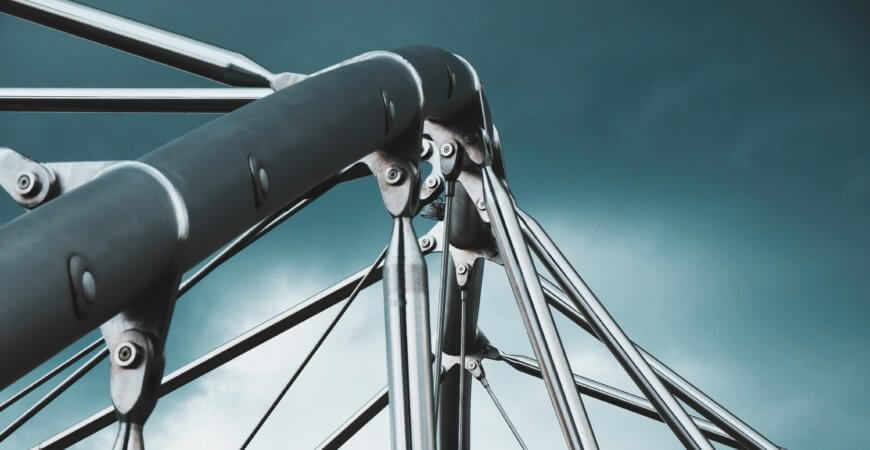

Chinese Steel Floods the World
Over the last years, the world has been literally flooded with steel produced in China. There’s plenty of it, it’s very cheap and causes massive drops in the material prices. Who will suffer the unpleasant consequences of Chinese overproduction and is there any way to change this unfavourable situation?
From the perspective of the global economy, steel is one of the most important raw materials, widely used in a number of industries, starting from construction, through technology and vehicle manufacturing, and ending with mining and rail industries. Thanks to its high durability and plasticity, it is a significant construction material, stimulating the development of numerous branches of industry. Steel production has been dominated by China for years. The last 30 years were a period of constant development of the Chinese economy, mostly fuelled by construction and processing industries. As a result, about 70% of the world’s production of steel comes from Asia, while China is able to export over 11 million tonnes of steel a month, which is an equivalent of 80% of the European Union’s total annual production!
To China, this means huge surplus production capacity and plenty of steel mills suffering losses. These are serious troubles affecting the global economy.
Why Does China Produce so Much Steel?
China produces twice as much steel as the USA, Russia, India and Japan altogether. At the moment, surplus production capacity is about 300 million tonnes. How is it possible for one country to produce such great amounts of this material?
Steel was indispensable in Asia during the investment boom in the last decades. For more than twenty years, China built houses, estates, roads, airports and railway lines on a mass scale, achieving unbelievable economic growth indicators. Rapidly growing Chinese production capacity has had a direct influence on the economies of other countries, boosting their development. However, the economic boom has died out, which is why investments in the Chinese infrastructure have ended. Such a sudden slump in the internal demand in China deepens the steel crisis in the world.
Consequences of Overcapacity
Steel from China is cheaper than the one from the EU by over 300 euros a tonne. Thus, material producers suffer huge losses caused by Chinese export. The problem is intensified by the growing demand for steel in Europe and the United States. Branches of Tata Steel, the second largest steel producer in the European Union, have fallen victim to this difficult situation. Tata Steel has withdrawn from England and Wales, liquidating over 15,000 jobs.
The European Union, the United States, Canada, Mexico, Switzerland, Japan, South Korea and Turkey have called China to cut steel overproduction. Workers from the smelting industry protest in the streets of many cities, including Brussels, against importing the material from China. The aggrieved countries demand that China accelerate the process of closing down their steelworks and cut its steel production as soon as possible. Otherwise, we are going to face other negative economic consequences, including liquidation of jobs in the whole European smelting industry.
Small Chances of Compromise
The United States has warned China that continued overproduction will entail severe economic sanctions. Despite numerous protests against steel dumping, pressure from the West has not had the desired results. China believes that overproduction is a global problem, and blaming only them is a form of fight against foreign competition. In fact, China fears that closing down steelworks will spark off many manifestations and undermine the situation in the country. According to China, only stimulating the internal demand and selling steel to Chinese customers from the automotive and machinery industries will produce the desired results. Will this solution work out? We’ll find out soon.
